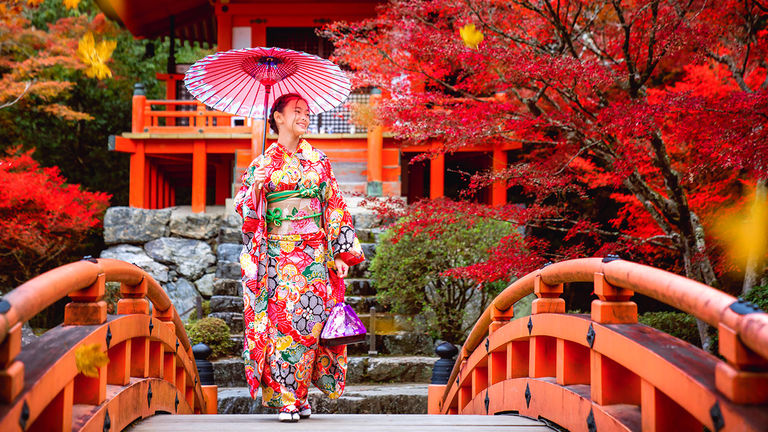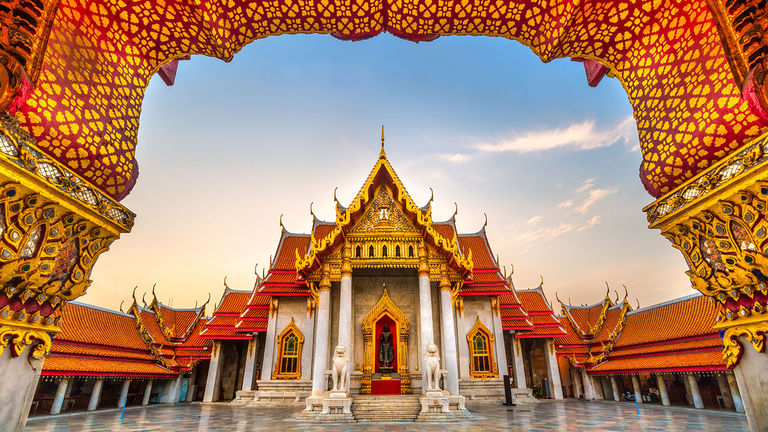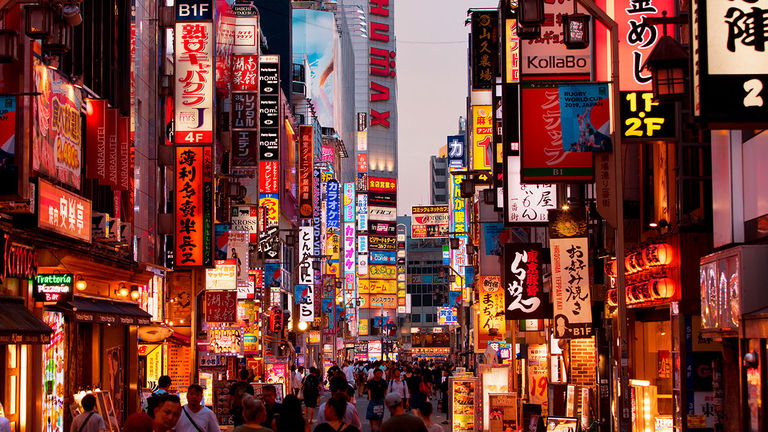Jack Richards, the CEO of Pleasant Holidays, recently came across some surprising numbers.
“You’re going to fall off your chair on this one,” he told me during an interview last month. “Our per-person prices to Asia are less expensive than our per-person prices to Hawaii.”
Explaining that a per-person price for Pleasant Holidays means “air, hotel, transfers — everything,” Richards said through March 31 this year the tour wholesaler’s per-person price for an Asia vacation was $2,973, while its per-person price for a Hawaii trip was $3,115.
“The hotel rates are way up in Hawaii,” Richards explained. “We’ve seen anything from a 10% to a 35% increase in average daily rates there. We’re just not seeing that in Asia. The hotel prices are much more moderate.”
The Pleasant Holidays CEO noted that airfares to Asia are up, but he said those increases have not been as severe as the jump in costs for flights from the U.S. to other international destinations.
“If you asked people, ‘What is more expensive: Asia or Hawaii?’ I think most people would say Asia,” Richards added. “That’s not the case right now.”
Japan Is Open for Tourism — But Very Busy
In a survey of more than 1,500 of its U.S. users conducted during the first quarter this year, the travel app Hopper found that 26% of respondents considering international vacations in 2023 were looking at flights to Asia — a search rate for the region that was up 10% from July 2022 and second only to Europe’s 36% share of the app’s total international searches.
 Japan is the most popular destination in Asia right now.
Japan is the most popular destination in Asia right now.
Credit: 2023 anekoho/stock.adobe.comAnd while that Hopper Q1 2023 survey reveals that London was the most searched for international destination by the polled American travelers, Tokyo was No. 2 on the list and finished ahead of heavy hitters Paris and Rome.
“Japan is just sizzling hot right now,” said Angela Hughes, the owner of Trips & Ships Luxury Travel, a Travel Leaders affiliate headquartered in Winter Garden, Fla.
“We probably did about 10 trips to Japan last week,” she added, noting demand for the destination is now outpacing what she saw in 2019. “The difference is the U.S. dollar is so strong in Japan. It’s the strongest it’s been in 30 years.”
Japan accounts for half our current Asia business with Thailand a strong second, South Korea and Vietnam nearly tied for third and Bali or Indonesia fourth.
Pleasant’s Richards said his company is seeing a 200% jump in its overall business to Asia this year when compared with 2019. Much of that surge has been driven by soaring bookings to Japan, where the wholesaler’s business is up 635% in 2023 when compared to 2019, he said.
Paul Barry, CEO of Avanti Destinations, said his company has also seen a recent spike in business to Asia.
 South Korea is seeing strong bookings at Avanti Destinations.
South Korea is seeing strong bookings at Avanti Destinations.
Credit: 2023 anekoho/stock.adobe.com“Room nights booked in Asia more than doubled from February to March this year,” Barry said. “Japan accounts for half our current Asia business with Thailand a strong second, South Korea and Vietnam nearly tied for third and Bali or Indonesia fourth. Current booking levels for Asia are about one-third of what they were in 2019, but the pace is picking up.”
Thailand Has a Major Tourism Goal
Many U.S. travel sellers said their business to Thailand has been performing particularly well in 2023, thanks to the destination’s track record of allowing international visitors access since the middle of 2021, and its especially competitive pricing there now. Thailand tourism officials are hopeful 2023 will be a year of strong recovery.
 Thailand is hoping to welcome 1 million U.S. travelers in 2023.
Thailand is hoping to welcome 1 million U.S. travelers in 2023.
Credit: 2023 Luciano Mortula/stock.adobe.com“We have been asked by the head office to get at least 1 million U.S. travelers to Thailand in 2023,” said Sobhana Sucharitakul, marketing manager for the Tourism Authority of Thailand’s Los Angeles bureau. “That’s only 6% less than the pre-pandemic U.S. visitor total in 2019. That will be pretty challenging for us, but it looks good with the bookings we’re seeing so far this year.”
The Cost of Flights to Asia
Tourism stakeholders seem to largely agree that airfares for flights to Asia from the U.S. are now more expensive than before the pandemic, but just how much have those prices increased?
Business class fares are probably double what they were before COVID-19. Economy class is up maybe 50%, so it’s substantial.
In its 2023 first quarter survey, Hopper found that roundtrip airfares to Asia from U.S. cities cost an average of about $1,490, a jump of 58% over the same period in 2019. The Hopper report also noted 2023 air seat capacity between the U.S. and Asia was down 42% when compared with 2019, likely fueling some of the price hikes.
 Red Lantern Journeys has been seeing an uptick in inquiries for several destinations, including Vietnam.
Red Lantern Journeys has been seeing an uptick in inquiries for several destinations, including Vietnam.
Credit: 2023 tong2530/stock.adobe.com“International fares are way up,” said Ambrose Bittner, owner of Seattle-based tour operator Red Lantern Journeys, which specializes in FIT tours across Asia. “And we do see some clients who are rethinking plans to go to Asia because of that. Business class fares are probably double what they were before COVID-19. Economy class is up maybe 50%, so it’s substantial.”
Bittner said his business to Asia started the year off slowly, but inquiries and bookings have grown substantially in recent weeks, especially for trips to Indonesia, Thailand, Japan, Vietnam and Cambodia.
“Bookings are starting to pick up for some short-notice trips within the next couple of months, but people are also now inquiring for the fall and winter season,” Bittner said.
 Travelers can get great value in destinations such as Bali.
Travelers can get great value in destinations such as Bali.
Credit: 2023 muratart/stock.adobe.comTrips & Ships owner Hughes has also seen her business to Thailand and Indonesia increase significantly in 2023, but she said the lower cost of hotels, meals and activities in destinations such as Bali are offsetting her clients’ initial concern about expensive Asia airfares.
“The price point right now is super good there, and people can have an amazing vacation,” Hughes said of Indonesia. “And the Caribbean, for example, is super high-priced. So, it becomes an opportunity-cost situation for people, where they say, ‘Hey, do I want to pay $1,500 a night to go to St. Lucia when I can stay in an amazing Bali property for $700?’”
Has China Actually Reopened for Tourism?
Although Chinese officials resumed issuing tourism visas on March 15 this year, reopening the nation’s borders to American vacationers, many U.S. travel sellers say they have not yet seen many bookings or even inquiries from clients interested in the destination.
“When China opened the visas in March, I was like, ‘This is great!’” said Hughes, who is a longtime China seller. “I posted right away on social media, saying ‘Hey, China’s open!’ And I thought we’d have a big rush, but really, it’s been just the opposite.”
 Tour operators say that China’s tour product is not ready for American clients yet.
Tour operators say that China’s tour product is not ready for American clients yet.
Credit: 2023 ake1150/stock.adobe.comHughes said worries about Chinese politics, particularly in relation to the war in Ukraine or posturing with Taiwan, have some clients skittish, while others still have COVID-19 concerns.
“You have got to make people feel they are going to be safe,” Hughes explained. “And that’s a problem with China. People feel like China might engage somewhere militarily, and they don’t want to be there if that happens. And some people are afraid, thinking ‘What if I contract something? Are they going to lock me up still?’”
Avanti CEO Berry said, meanwhile, that for his company China is not — from a practical point of view — really open for tourism right now.
There’s been no communication from Chinese DMCs during the pandemic. It is like coming out of a big black hole.
“We’ve received very little communication from our destination management partners in China,” Berry said. “It doesn’t sound as though the tourism infrastructure has been set in place. They may technically be open from a visa point of view, but we haven’t received enough information about what’s open in China and what isn’t. Now, it’s different for Hong Kong. We’re having some limited inquiries there, but for what some people would call mainland China, for all practical purposes right now, it’s not open.”
Bittner agreed with Berry, saying Red Lantern does not plan to begin marketing its tourism products to China for at least a few more months.
“In China, we have no idea what’s been happening in terms of hotel changes,” Bittner said. “They may have had a domestic tourism market for a while, but there has been zero international market, and it’s just going to take time to get service levels back to normal and staffing levels back. There’s been no communication from Chinese DMCs during the pandemic. It is like coming out of a big black hole. We do not really know what to expect.”
The Challenges of Booking Japan
David Kolner, executive vice president of Virtuoso, is one of many travelers who had a trip on the books to Japan before the pandemic and decided to postpone that vacation rather than cancel.
“There are a lot of previously delayed trips to Japan happening now,” Kolner said. “People really wanted to go, and many were not canceling.”
 Japan’s labor shortage is affecting the availability of tour guides and drivers.
Japan’s labor shortage is affecting the availability of tour guides and drivers.
Credit: 2023 pop_gino/stock.adobe.comKolner said Japan has been one of Virtuoso’s best-selling countries for 2023, but booking vacations now to Asia’s hottest destination is not necessarily a cakewalk.
“There are huge constraint issues,” he said.
All those trips postponed by the pandemic that are taking place now — combined with high demand for new bookings — have strained a visitor industry within Japan that’s still trying to get up to speed, according to Kolner.
“The real sticking point is in the tour guides and drivers,” he said, explaining that many of those folks had to find other jobs during Japan’s tourism shutdown. “There’s just not enough now. Advisors are not confirming Japan trips for the client until they find out if they can get guides or drivers.”
When people inquire about Japan, I’m warning them it’s going to be very expensive, and it’s going to take us time to process.
Red Lantern’s Bittner also said many of the Japanese DMC partners he has worked with in the past are not options he feels he can rely on today, due in part to the labor shortage.
“Normally, it’s a one- or two-day turnaround time for response to emails,” he said. “These days it can be weeks if not months on some things,” Bittner explained. “It’s incredible just how overwhelmed the local Japan operators are. When people inquire about Japan, I’m warning them it’s going to be very expensive, and it’s going to take us time to process.”
Red Lantern’s Japan pricing is now up 50% compared with 2019, according to Bittner, who is encouraging folks to book Japan at least six months out.
Kaoru Shoji, executive director of the Japan National Tourism Organization’s Los Angeles bureau, acknowledged that the nation’s current tourism labor shortage “is being felt more distinctly due to this heightened travel demand for Japan.”
But Shoji was quick to add that “efforts are already being made to increase staff across the industry, [and] we are confident the situation will greatly improve with time.”